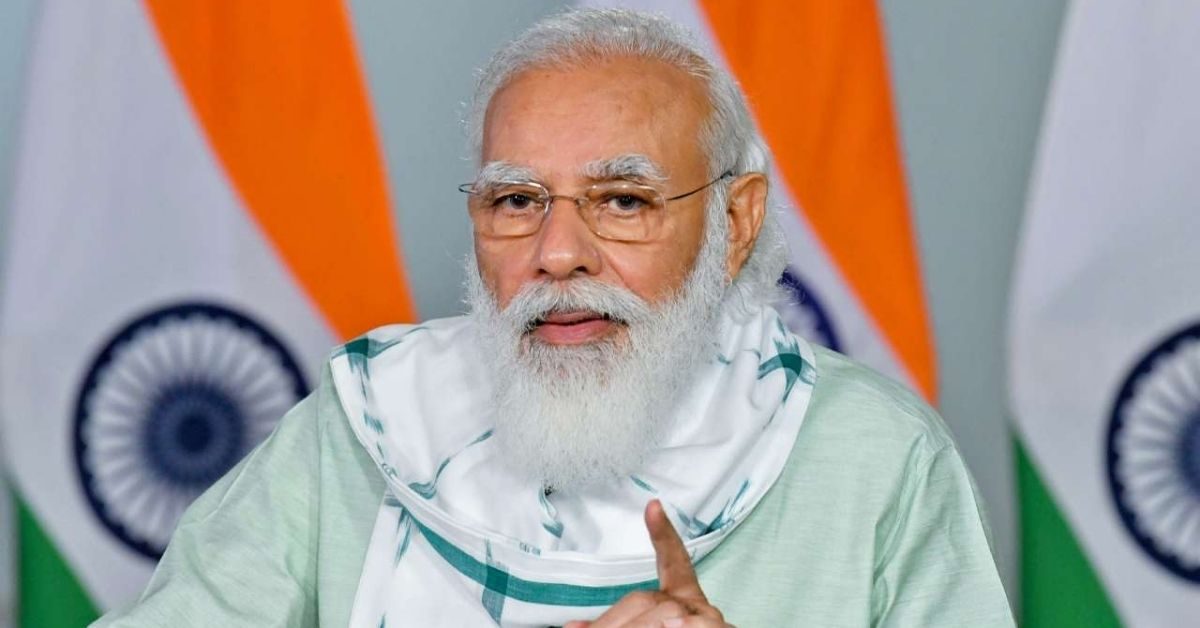In the early hours of February 1, Myanmar’s generals staged a bloodless coup and imposed a state of emergency. Hundreds of civilian leaders and activists have been detained.
India was quick to respond. Within hours of the power grab, New Delhi issued a statement expressing “deep concern” over the “developments in Myanmar.” “India has always been steadfast in its support to the process of democratic transition in Myanmar,” it said, calling on Myanmar to uphold “the rule of law and the democratic process.”
The statement refrained from mentioning the military or the coup.
A few days later, at the United Nations Security Council (UNSC), India, which began its stint as a non-permanent member only a month ago, reportedly acted as an “important bridge” between contending opinions. Apparently, India pushed for a statement that was not “condemnatory.”
India’s statement after the coup and its role at the UNSC suggest that New Delhi will adopt a cautious approach toward Myanmar. While it can be expected to call for dialogue and reconciliation, it will avoid criticizing the generals. Instead, India will engage the junta.
Decades ago, India was uneasy with authoritarian and military regimes in its neighborhood. A vibrant democracy, it supported democratic struggles in the neighboring countries. In the case of Myanmar, there were other reasons too for India’s pro-democracy policies. Cooperation between the anti-colonial struggles in the two countries had resulted in strong ties between the Indian National Congress and Myanmar’s Anti-Fascist People’s Freedom League. General Aung San was close to India’s first Prime Minister Jawaharlal Nehru. His daughter, Aung San Suu Kyi, had studied in India.
Not surprisingly, Myanmar’s generals evoked little support then.
When General Ne Win staged a coup in 1962, the inward-looking junta snapped ties with the world. India-Myanmar relations went into deep freeze. Then in 1988, protests erupted in Myanmar and quickly snowballed into a mass pro-democracy movement. The generals unleashed extreme violence to quell the protests and were condemned worldwide.
India was vociferous in its criticism of the junta. The Indian Embassy in Yangon reportedly helped pro-democracy activists and opposition groups during the protests. India provided refuge to activists fleeing military repression, and even let out on bail two students from Myanmar who had hijacked a plane to draw international attention to the plight of people under military rule in their country. The Indian government-run All India Radio’s Burmese services broadcast anti-military content. In 1992, India even co-sponsored a United Nations resolution criticizing the junta’s violation of human rights.
It even went on to honor Aung San Suu Kyi, who was leading Myanmar’s struggle for democracy, with the prestigious Jawaharlal Nehru Award for International Understanding. However, there was growing concern in India over the implications of supporting the pro-democracy movement in Myanmar. For instance, a section in the Indian government was reportedly opposed to conferring the award on Aung San Suu Kyi.
Drawing the junta’s ire was seen to be counterproductive to India’s economic and security interests in Myanmar.
Isolated globally over its repression, Myanmar’s military had turned to China for diplomatic, economic, and military support. Bilateral trade surged as did Chinese investment and supplies of weaponry to Myanmar. It resulted in a strong relationship, albeit one that caused Myanmar’s deep dependence on China. The Chinese presence in Myanmar and the clout Beijing wielded over the military set alarm bells ringing in New Delhi as it had grave implications for India’s security.
There were other factors too that prompted India’s diplomatic and security establishment to rethink the “idealistic” pro-democracy policy toward Myanmar. The success of India’s counter-insurgency operations in its Northeast required the cooperation of Myanmar’s generals as anti-India insurgents were taking sanctuary across the border. Besides, India’s “Look East” policy required India to engage Myanmar, its “land-bridge” to Southeast Asia.
From 1993 and on, India set in motion a realpolitik or pragmatic policy toward Myanmar. It initiated a rapprochement with the generals and several high-level visits by Indian ministers and officials followed. Parallel to its stepped up engagement of the generals, New Delhi toned down its criticism of them. Its statements called for reconciliation rather than restoration of democracy.
Over the past 25 years, India’s relations with Myanmar have improved. Although Chinese influence remains strong, India wields significant influence as well. In 2019, India emerged as Myanmar’s top arms supplier, selling $100 million of military hardware compared with China’s $47 million. The military’s crackdown on anti-India militants based in Myanmar and its cooperation during counter-insurgency operations have contributed to India’s successful quelling of insurgency in the Northeast.
The gains India made in its relations with Myanmar over the past 25 years are seen in New Delhi to be the result of its pragmatic policy of engaging with whoever is in power in Naypyidaw.
Importantly, none of the issues that prompted India in the 1990s to engage Myanmar’s generals have gone away. Indeed, these are even more relevant today. China’s clout in Myanmar and other South Asian countries, for instance, has grown on account of the Belt and Road Initiative.
Back in the 1990s, Indian decision makers were somewhat uneasy with abandoning Aung San Suu Kyi to court the generals. Such dilemmas are unlikely to crowd the thoughts of India’s foreign policy establishment as they craft policies and strategies toward Myanmar in the coming weeks and months.ADVERTISEMENT
The Narendra Modi government is itself far from democratic. Its policies are undemocratic and actions authoritarian. It is unlikely to be moved by the plight of the people of Myanmar or to shed tears over the junta’s treatment of Aung San Suu Kyi and other leaders.
It could, at best, issue anodyne statements of support to democracy and dialogue. But otherwise, it will be business as usual with the generals.
Source : The Diplomat







